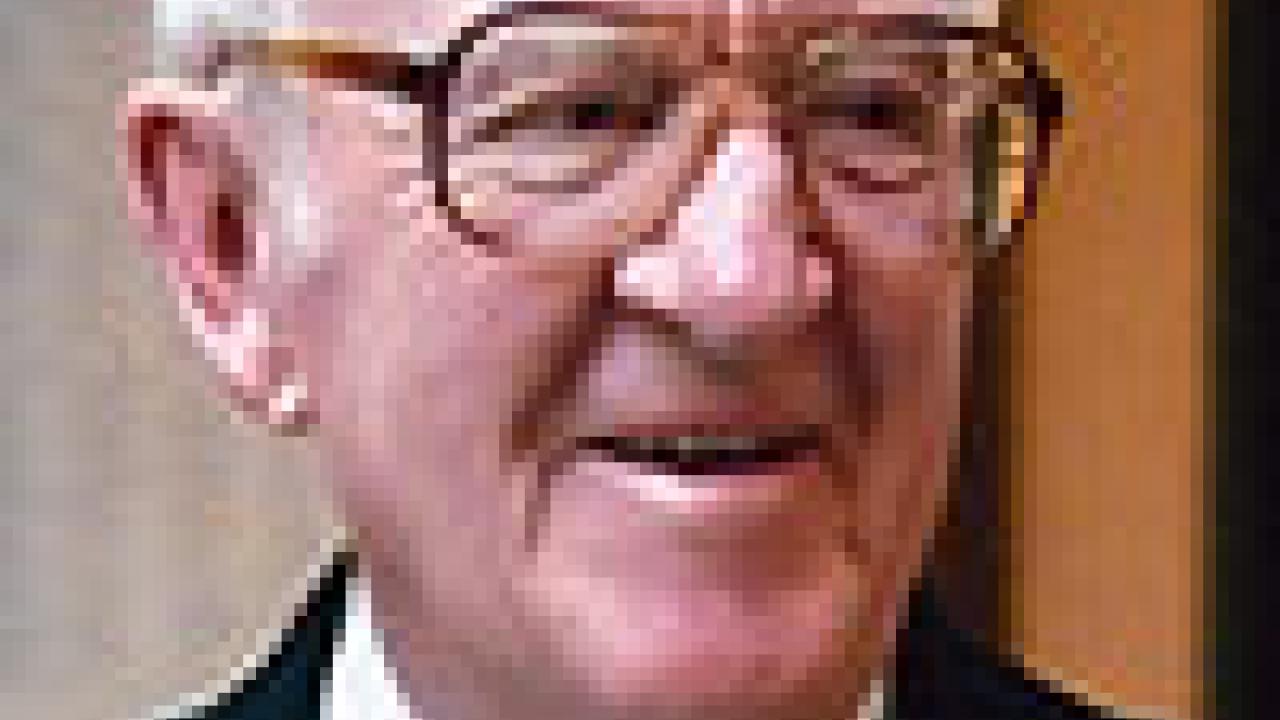Pulitzer Prize-winning journalist Linda Greenhouse will join former judges and U.S. Supreme Court law clerks in a daylong symposium exploring the legacy of Justice John Paul Stevens at the UC Davis School of Law on Friday, March 6.
The symposium will open at 9 a.m. in the Wilkins Moot Courtroom in King Hall with a videotaped address by Stevens, the longest-serving member of the court and a man often described as leader of its liberal wing. The event is free and open to the public.
Three panel discussions will follow Stevens' video address:
9:30 a.m. "Liberty" -- Greenhouse, who covered the U.S. Supreme Court for The New York Times from 1978 through 2008; Jeffrey L. Fisher, associate professor of law and co-director of the Supreme Court Litigation Clinic at Stanford Law School; Jamal Greene, an associate professor of law at Columbia Law School and former clerk for Stevens; and Elisabeth Semel, clinical professor of law and director of the Death Penalty Clinic at UC Berkeley School of Law, will examine Steven's view of constitutionally protected liberty as it applies to criminal justice, capital punishment, gay rights, abortion and other issues. David F. Levi, dean of the Duke University School of Law and a former chief U.S. district judge for the Eastern District of California, will moderate.
11:15 a.m. "Equality" -- Cruz Reynoso, the Boochever and Bird Professor of Law Emeritus at UC Davis and the first Latino to serve on the California Supreme Court, will moderate a discussion of Stevens’ jurisprudence on equal protection, affirmative action, discrimination and race relations. Panelists will include three former Stevens law clerks: UC Davis law professor Diane Marie Amann, who is at work on a biography of the justice; former U.S. deputy assistant attorney general Teresa Wynn Roseborough, a principal attorney for the Gore campaign in litigation following the 2000 presidential election and now a senior litigation counsel for MetLife; and Andrew Siegel, associate professor, Seattle University School of Law.
2 p.m. “Security” -- Kenneth Manaster, professor of law at Santa Clara University and author of "Illinois Justice: The Scandal of 1969 and the Rise of John Paul Stevens," will moderate a discussion of Stevens’ treatment of clashes between individual and state security, with an emphasis on national security issues in the post-9/11 counterterrorism environment. Panelists will include Daniel A. Farber, the Sho Sato Professor of Law at UC Berkeley and a former Stevens clerk; Eugene R. Fidell, president of the National Institute of Military Justice; former Stevens clerk and Clinton speechwriter Deborah N. Pearlstein, now an associate research scholar at Princeton University’s Woodrow Wilson School for Public and International Affairs; and Kathryn Watts, assistant professor of law at the University of Washington, who also clerked for Stevens.
Stevens has served on the U.S. Supreme Court since 1975. Among his noted recent opinions are his opinions for the court in several cases involving the rights of persons held in detention at sites such as the naval base at Guantánamo Bay, Cuba, as well as his dissent in Bush v. Gore, the decision that helped George W. Bush win the 2000 election. Stevens was most recently in the public eye on Inauguration Day, when he administered the oath of office for Vice President Joe Biden.
The symposium is hosted by the UC Davis Law Review, one of the 50 most-cited legal periodicals in the U.S., and the UC Davis School of Law, one of the nation’s top law schools. Known for its outstanding ranking, small size, accessible and dedicated faculty of renowned scholars, and supportive learning environment, the School of Law offers a challenging academic program with diverse specialties including business law, environmental law, international and comparative law, intellectual property, immigration law, constitutional law and public-interest law. It also offers award-winning trial and appellate advocacy programs, clinics, and externships, five student-run journals and more than 40 active student organizations.
About UC Davis
For 100 years, UC Davis has engaged in teaching, research and public service that matter to California and transform the world. Located close to the state capital, UC Davis has 31,000 students, an annual research budget that exceeds $500 million, a comprehensive health system and 13 specialized research centers. The university offers interdisciplinary graduate study and more than 100 undergraduate majors in four colleges -- Agricultural and Environmental Sciences, Biological Sciences, Engineering, and Letters and Science -- and advanced degrees from five professional schools: Education, Law, Management, Medicine, and Veterinary Medicine. The UC Davis School of Medicine and UC Davis Medical Center are located on the Sacramento campus near downtown.
Media Resources
Claudia Morain, (530) 752-9841, cmmorain@ucdavis.edu
Joe Martin, School of Law, (530) 754-5428, jomartin@ucdavis.edu
